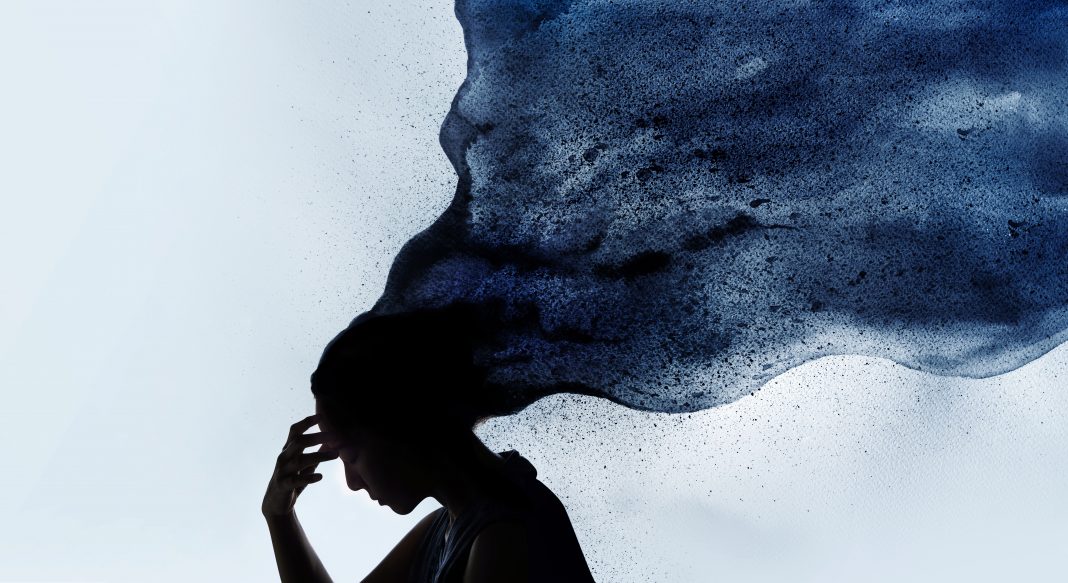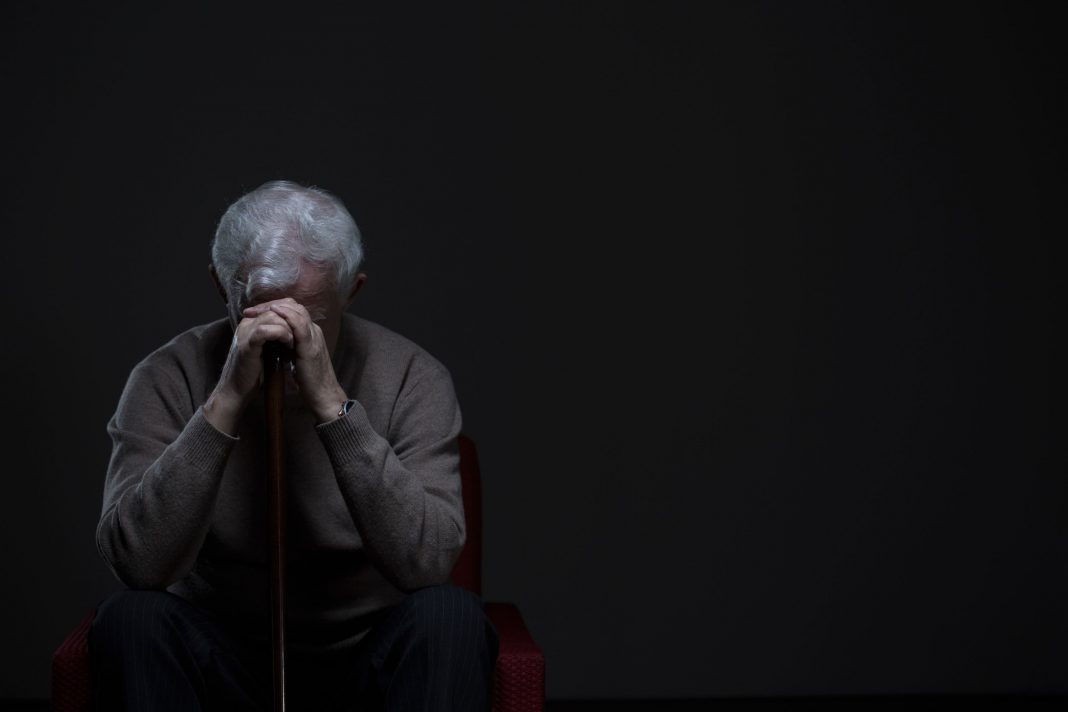Reading Time: 12 minutes
What is it?
Depression is a serious mood disorder that affects your whole body including your mood, emotions and thoughts. It touches every part of your life. If you have one episode of depression, you are at risk of having more throughout life. If you don’t get treatment, depression can happen more often and be more serious.
Who gets affected?
People who have had an episode of major depression, who are less resilient and/or who have anxious tendencies may be more likely to develop a depressive disorder. Such people often do not develop the social skills to adjust to life pressures. The presence of other mental disorders increases risks for major depressive disorder.
Depression affects one in fifteen adults (6.7%) in any given year. And one in six people (16.6%) will experience depression at some time in their life.
AGE – Depression can occur at any time, but on average, first appears during the late teens to mid-20s.
ETHNICITY – American Indians, Native Americans and Alaska Natives are the most likely to develop psychiatric disorders, including depression. Depression is found to be less common among Asians, and more common among Hispanics and Latin people.
GENDER – Women are more likely than men to experience depression. Some studies show that one-third of women will experience a major depressive episode in their lifetime.
Possible factors include the following:
Greater exposure to, heightened response to or inability to cope with daily stresses.
Higher levels of monoamine oxidase (the enzyme that degrades neurotransmitters considered important for mood).
Higher rates of thyroid dysfunction.
Endocrine changes that occur with menstruation and at menopause.
FAMILIAL There is a high degree of heritability (approximately 40%) when first-degree relatives (parents/children/siblings) have depression.
Genetics: Depression can run in families. For example, if one identical twin has depression, the other has a 70 percent chance of having the illness sometime in life. It could make you almost three times as likely to develop the condition as someone without a family history of the condition.
However, you can have clinical depression without a family history of it.
Personality: People with low self-esteem, who are easily overwhelmed by stress, or who are generally vulnerable or pessimistic are more likely to experience depression.
Environmental factors: Continuous exposure to violence, neglect, abuse or poverty may make some people more vulnerable to depression.
Childhood development: Multiple adverse childhood experiences (ACEs) such as abuse and trauma are associated with the development of clinical depression later in life.
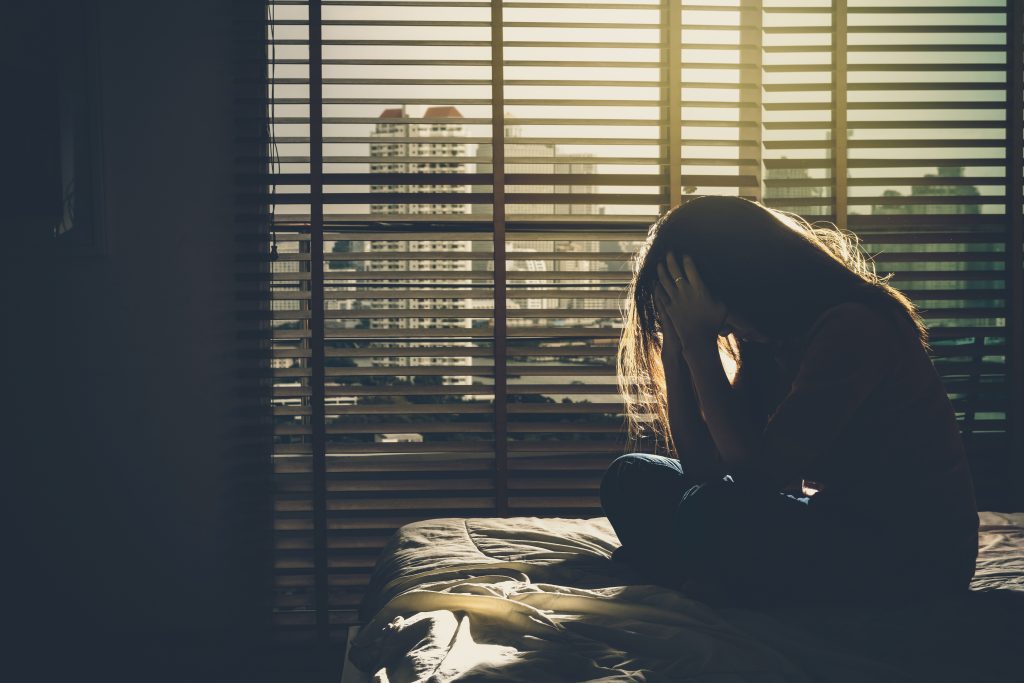
Stressful life events: Tough experiences, such as the passing of a loved one, trauma- physical or mental, divorce, isolation and lack of support, can trigger clinical depression in people; however, such events do not usually because lasting, severe depression except in people predisposed to a mood disorder.
At the end of the day, Depression can affect anyone—even a person who appears to live in relatively ideal circumstances.
What happens?
Depression probably causes changes in the areas of the brain that control mood. Nerve cells may function poorly in certain regions of the brain; Miscommunication between nerve cells or nerve circuits can make it harder for a person to regulate mood.
It could be caused by an imbalance of neurotransmitters, including serotonin, norepinephrine and dopamine. While initially they were thought to be a primary issue, recent theories suggest that disturbances in more complex neural circuits cause secondary imbalances of neurotransmitters, including abnormal regulation of cholinergic, catecholaminergic (noradrenergic or dopaminergic), glutamatergic, and serotonergic (5-hydroxytryptamine) neurotransmission
Hormonal changes may also negatively affect mood. An individual’s life experience affects these biological processes.
Types

Major depressive disorder — also called clinical depression. The person goes through prolonged and persistent periods of extreme sadness, persistently low or depressed mood, anhedonia or decreased interest in any activities, feelings of guilt or worthlessness, lack of energy, poor concentration, appetite changes, sleep disturbances, or suicidal thoughts.
Bipolar disorder — earlier called manic depression or bipolar affective disorder; it is a mental health condition that causes extreme mood swings, from emotional highs (mania or hypomania) to extreme lows (depression).
Seasonal affective disorder (SAD) — a form of depression most often associated with fewer hours of daylight in the far northern and southern latitudes from late fall to early spring. This type of depression is related to changes in seasons and begins and ends at about the same times every year.
More common is a mild version of SAD known as the “winter blues.” People tend to feel a little down during colder months, with shorter days and snow, when they are confined to their houses.
Cyclothymic disorder — a rare disorder that causes emotional ups and downs that is less extreme than bipolar disorder. In most people, the pattern is irregular and unpredictable.
Premenstrual dysphoric disorder – Premenstrual dysphoric disorder (PMDD) is a severe form of PMS that includes physical and behavioral symptoms that usually resolve with the onset of menstruation. — Typically, women experience mood changes and irritability that occur during the premenstrual phase of a woman’s cycle and will go away with the onset of menses.
PMDD can cause extreme mood shifts, disrupting work and damaging relationships. Symptoms include extreme sadness, hopelessness, irritability or anger, plus common PMS symptoms such as breast tenderness and bloating.
Persistent depressive disorder (dysthymia) – A mild but long-term form of depression, Dysthymia is defined as a low mood occurring for at least two years, along with at least two other symptoms of depression, including lack of interest in normal activities, sense of hopelessness, low self-esteem, reduced appetite, low energy, sleep changes and poor concentration.
Disruptive mood dysregulation disorder —it is a comparatively newly recognised mood disorder- a disorder of chronic, severe and persistent irritability in children that often includes frequent temper tantrums that are inconsistent with the child’s developmental age.
DMDD symptoms are severe. Youth who have DMDD experience significant problems at home, at school, and often with peers. They also tend to have high rates of health care service use, hospitalisation, and school suspension, and they are more likely to develop other mood disorders.
Depression related to medical illness — a persistent depressed mood and a significant loss of pleasure in most or all activities that’s directly related to the physical effects of another medical condition, such as thyroid disorders, adrenal gland disorders, benign and malignant brain tumors, stroke, AIDS, Parkinson disease.
Depression induced by substance use or medication — depression symptoms that develop during or soon after substance use or withdrawal or after exposure to a medication, such as corticosteroids, some beta-blockers, interferon, and reserpine, can also result in depressive disorders. Abuse of some recreational drugs (eg, alcohol, amphetamines) can lead to or accompany depression. Toxic effects or withdrawal of drugs may cause temporary depressive symptoms.
Peripartum-onset depression– symptoms develop during pregnancy or within 4 weeks after delivery (postpartum depression); endocrine changes have been implicated, but the specific cause is unknown.
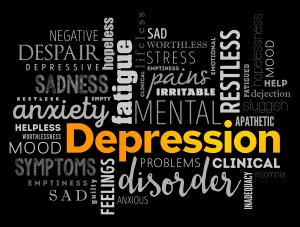
Although depression may occur only once during your life, people typically have multiple episodes. For many people with depression, symptoms usually are severe enough to cause noticeable problems in day-to-day activities, such as work, school, social life or their relationships with others. Some people may feel generally miserable or unhappy without really knowing why. During these episodes, symptoms occur most of the day, nearly every day and may include:
Mental symptoms:
Feelings of sadness, tearfulness, emptiness or hopelessness – nothing will ever get better and there’s nothing you can do to improve your situation.
Angry outbursts, irritability or frustration, even over small matters
Loss of interest or pleasure in most or all normal activities, such as sex, hobbies or sports
Tiredness and lack of energy, so even small tasks take extra effort
Anxiety, agitation or restlessness
Slowed thinking, speaking or body movements
Feelings of worthlessness or guilt, fixating on past failures or self-blame
Trouble thinking, concentrating, making decisions and remembering things
Frequent or recurrent thoughts of death, suicidal thoughts, suicide attempts or suicide
Physical symptoms:
Sleep Problems
Depression can affect your body as well as your mind. Insomnia- Trouble falling or staying asleep is common in people who are depressed. But some may find that they sleep too much.
Chest Pain
Depression can also raise your risk of heart disease. Plus, people who’ve had heart attacks are more likely to be depressed
It could, of course, be a sign of heart, lung, or stomach problems, so see your doctor to rule out those causes. .
Fatigue and Exhaustion
If you feel so tired that you don’t have energy for everyday tasks — even when you sleep or rest a lot — it may be a sign that you’re depressed. Depression and fatigue together tend to make both conditions seem worse.
Aching Muscles and Joints
When you live with ongoing pain it can raise your risk of depression. On the other hand, depression can make you feel aches and pains hat might not exist or be very minimal.
Depression may also lead to pain because the two conditions share chemical messengers in the brain. People who are depressed are three times as likely to get regular pain.
Digestive Problems
Many of us get stomachaches or nausea when we’re stressed or worried. This is because our brains and digestive systems are strongly connected.
Depression can get you in your gut too — causing nausea, indigestion, diarrhea, or constipation.
Headaches
Studies show that people with major depression are three times more likely to have migraines, and people with migraines are five times more likely to get depressed.
Changes in Appetite or Weight
Some people feel less hungry when they get depressed. Others can’t stop eating- often, depression is associated with eating disorders, such as bulimia, anorexia, or binge eating. The result can be weight gain or loss- a change of more than 5% of body weight in a month; along with lack of energy.
Reckless behavior. Engaging in escapist behavior such as substance abuse, compulsive gambling, reckless driving, or dangerous sports.
Back Pain
A backache on a regular basis may contribute to depression. And people who are depressed may be four times more likely to get intense, disabling neck or back pain.
Agitated and Restless
Sleep problems or other depression symptoms can make you feel this way. Men are more likely than women to be irritable when they’re depressed.
Sexual Problems
If you’re depressed, you might lose your interest in sex. Some prescription drugs that treat depression can also take away your drive and affect performance. Talk to your doctor about your medicine options.
Depression symptoms in children and teens
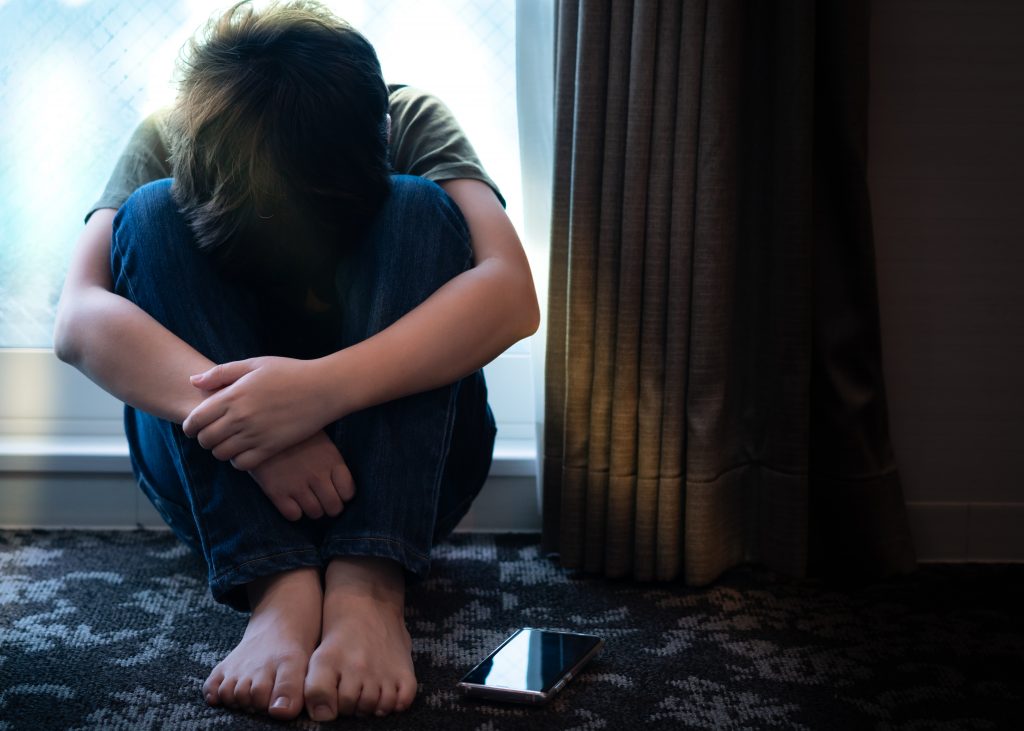
It’s normal for kids to feel sad, act grouchy, or be in a bad mood occasionally; a sad or bad mood lasting for weeks or longer, accompanied with other changes in a child’s behavior, may point to depression.
If a child is depressed, parents may notice some of these signs:
A child may seem sad, lonely, unhappy, or grouchy. It can last weeks or months.
A child may cry more easily.
They may have more tantrums than before.
Kids going through depression may complain a lot. They may say self-critical things like, “I don’t have any friends.” “I can’t do this.” “It’s too hard for me.”
Depression can drain a child’s energy, even small tasks feel huge. They might put less effort into school than before. Kids may seem tired, give up easily, or not try.
Kids don’t have as much fun with friends or enjoy playing like before. They may not feel like doing things they used to enjoy.
Kids may not sleep well or seem tired even if they get enough sleep.
Some may not feel like eating. Or overeat. They could be obese, or underweight.
Some children may complain of stomach aches or other pains. Some miss school days because of not feeling well, even though they aren’t sick.
Depression in teens
Peer pressure, academic expectations and changing bodies can and do bring a lot of ups and downs for teens. But for some teens, the lows are more than just temporary feelings — they’re a symptom of depression.
Teen depression isn’t a weakness or something that can be overcome with willpower — it can have serious consequences. Some symptoms they exhibit are –
Feelings of sadness, including crying spells for no apparent reason.
Frustration or feelings of anger, even over small matters. An Irritable or annoyed mood, without knowing why.
Feeling hopeless or empty
Loss of interest or pleasure in usual activities
Loss of interest in, or fights with, family and friends
Low self-esteem, with feelings of worthlessness or guilt.
Fixation on past failures or exaggerated self-blame or self-criticism
Extreme sensitivity to rejection or failure, and the need for excessive reassurance
Trouble thinking, concentrating, making decisions and remembering things
Ongoing sense that life and the future are grim and bleak
Frequent thoughts of death, dying or suicide
Behavioral changes
Tiredness and loss of energy
Insomnia or sleeping too much
Changes in appetite — decreased appetite and weight loss, or increased cravings for food and weight gain
Use of alcohol or drugs – could lead to addictions.
Agitation or restlessness — for example, pacing, hand-wringing or an inability to sit still
Slowed thinking, speaking or body movements
Frequent complaints of unexplained body aches and headaches, which may include frequent visits to the school nurse
Social isolation
Poor school performance or frequent absences from school
Less attention to personal hygiene or appearance
Self-harm — for example, cutting or burning
Making a suicide plan or a suicide attempt
If you have 5 or more of these symptoms for at least 2 weeks, you may be diagnosed with depression. These feelings are a noticeable change from what’s “normal” for you.
The symptoms of depression may look like other mental health conditions. Always see a healthcare provider for a diagnosis.
Treatments
Depression, even the most severe cases, can be treated. The earlier treatment begins the more effective it is. Depression is usually treated with medication, psychotherapy, or a combination of the two.
Medications
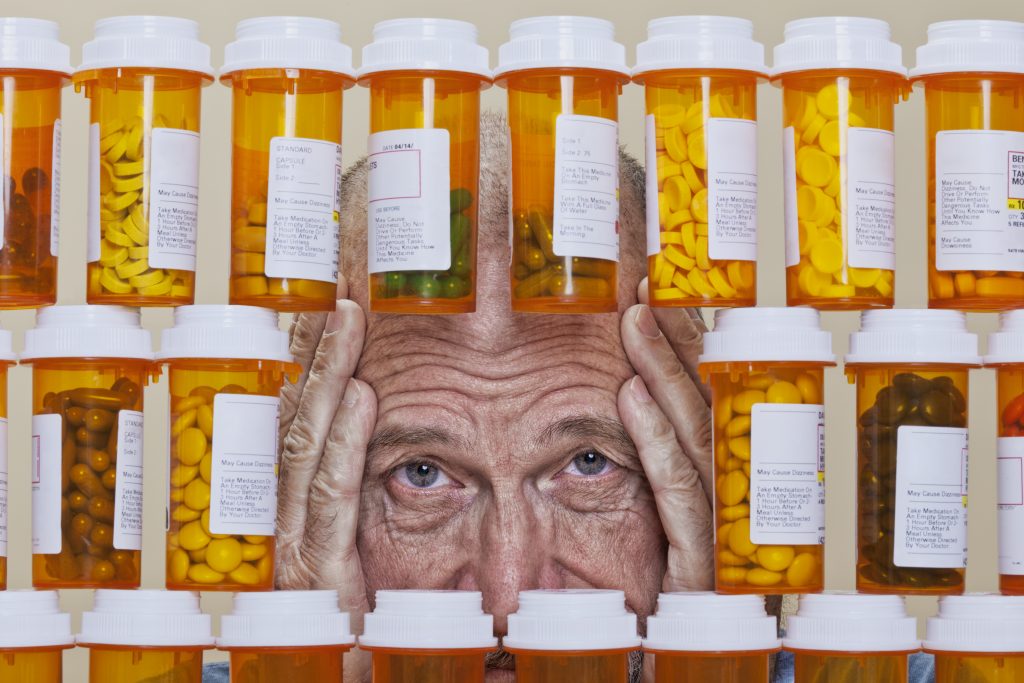
Antidepressants are medications commonly used to treat depression. They work by changing how the brain produces or uses certain chemicals involved in mood or stress. A medication that has helped you or a close family member in the past will often be considered first.
Antidepressants take time—usually 4–8 weeks—to work it is important to give a medication a chance to work before deciding whether it’s the right one for you.
If you begin taking an antidepressant, do not stop taking it without talking to a health care provider. Sometimes people taking antidepressants feel better and stop taking the medications on their own, and their depression symptoms return.
Some people may experience treatment-resistant depression, which occurs when a person does not get better after trying at least two antidepressant medications. If treatments like medication and psychotherapy do not reduce depressive symptoms or the need for rapid relief from symptoms is urgent, brain stimulation therapy may be an option to explore.
Psychotherapies
Several types of psychotherapy (also called talk therapy or counseling) can help people with depression by teaching them new ways of thinking and behaving and how to change habits that contribute to depression.
Telehealth for mental health services, which offers an alternative to in-person therapy, has made it easier and more convenient for people to access care in some cases.
Brain stimulation therapies
If medication or psychotherapy does not reduce symptoms of depression, brain stimulation therapy may be an option… There are now several types of brain stimulation therapy, some of which have been authorized by the FDA to treat depression.
Although brain stimulation therapies are less frequently used than medication and psychotherapy, they can play an important role in treating mental disorders in people who do not respond to other treatments. These therapies are used for most mental disorders only if medication and psychotherapy have either failed or are acting very slowly. Very often, they are used alongside these treatments.
Brain stimulation therapies act by activating or inhibiting the brain with electricity.
The brain stimulation therapies with the largest bodies of evidence include:
Electroconvulsive therapy (ECT)
Repetitive transcranial magnetic stimulation (RTMS)
Vagus nerve stimulation (VNS)
Magnetic seizure therapy (MST)
Deep brain stimulation (DBS)
Alternative treatments

Some people use natural products, including vitamin D and the herbal dietary supplement St. John’s wort, for depression
Daily morning light therapy is a preferred treatment choice for people with seasonal affective disorder. Light therapy devices are much brighter than ordinary indoor lighting and considered safe, except for people with certain eye diseases or taking medications that increase sensitivity to sunlight.
Self-care
This can play an important role in managing symptoms of depression and promoting overall well-being.
What you can do:
Try to keep doing activities you used to enjoy
Stay connected to friends and family. Reach out to them, especially in times of stress.
Exercise regularly, even if it’s just a short walk
Stick to regular eating and sleeping habits as much as possible
Avoid or cut down on alcohol and don’t use illicit drugs, which can make depression worse
Talk to someone you trust about your feelings
Seek help from a healthcare provider.
Remember you are not alone, and that many people have gone through what you’re experiencing and found help
Take steps to control stress, increase resilience and boost self-esteem to help handle issues when they arise
Practice self-care, for example by creating a healthy sleep routine and using electronics responsibly and in moderation
Get treatment at the earliest sign of a problem to help prevent depression from worsening
Maintain ongoing treatment, if recommended, even after symptoms let up, to help prevent a relapse of depression symptoms
Join a support group.
If you think you are in immediate danger of harming yourself, contact any available emergency services or a crisis line.
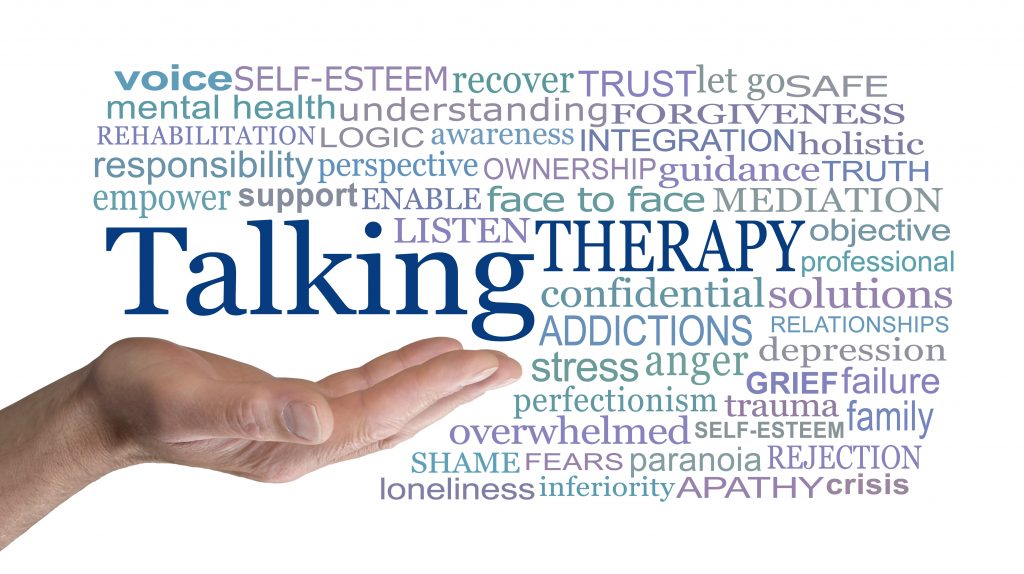
Managing a career and depression
Living with depression can generally be difficult; managing personal life and career is almost an impossible task. It affects a career oriented person in different ways –
Disrupts cognitive functioning – communication, decision making, leading teams and people- all are affected.
Absenteeism – A person suffering from MMD tends to have bad days, where getting too work is difficult. These people take more leaves than required.
Social norms – MMD forces a person to regress from social life, avoiding people, lack of empathy and cooperation.
How do you manage?
A few steps will help you manage your career, while dealing with depression-
Communication with your team, with your supervisors, is of key importance. Make sure they know what you’re going through, let them be your support.
Set small tasks – it becomes difficult to concentrate on a project for a length of time, so set small goals. Achieving them will go a long way to giving you incentive.
Give yourself a break – Its ok to cut yourself some slack, to give yourself some time off, from stress triggers and deadlines.
It’s important to remember that depression is not a weakness or character flaw. It’s a chemical imbalance in your brain that needs to be treated.


